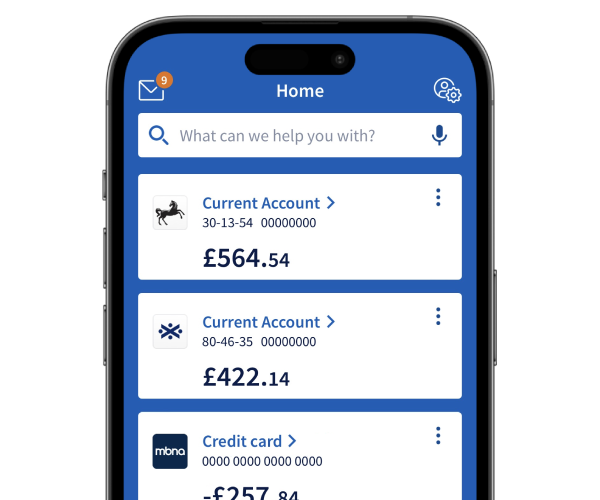Go paper-free
Amend paper-free preferences for your statements and communications.
We can help you to keep your account safe from scammers. If you follow our advice, we will be more likely to consider a refund if you fall victim to a scammer.

Authorised Push Payment (APP) fraud is a transfer of funds across Faster Payments, CHAPS or an internal transfer, authorised by a customer where:

This service allows you to see all your accounts in one place. For your own security:
We'll never share your sign in details with anyone or contact you by phone or email asking for them. If you have concerns, please contact us right away.
These claims may be protected by the Contingent Reimbursement Model code. Get in touch, we’ll continue to review these claims on a case-by-case basis.
From 7 October 2024, to protect you from fraud, Halifax will follow a new set of rules for customer scam refunds.
Halifax is a signatory of the voluntary Contingent Reimbursement Model code (CRM), which is a set of standards designed to protect consumers from Authorised Push Payment (APP) scams. These scams happen when people are tricked into authorising payments to accounts that they think are genuine but are controlled by fraudsters.
We’ll look at all scam cases to make sure a payment was made with genuine care. We can then decide on a refund for any money you may have lost.
The CRM code doesn’t apply:
The PSR is the UK economic regulator of payment systems operated by UK banks, building societies and payment service providers.
A payment system is used to move money electronically. So, whenever you make a contactless payment, transfer money or get paid, a payment system has been used.
The PSR collects information from all the major banking groups in the UK.
You might have noticed some graphs at the bottom of our homepage, showing APP fraud data for 2023. We publish this information in line with the requirements issued by the PSR (Payment Systems Regulator).
You’ll see that some brands are grouped together. Halifax is part of the same group which also includes Lloyds and Bank of Scotland. The data shown here is a combination of these three brands.
The full report is available at psr.org.uk/app-fraud-data.